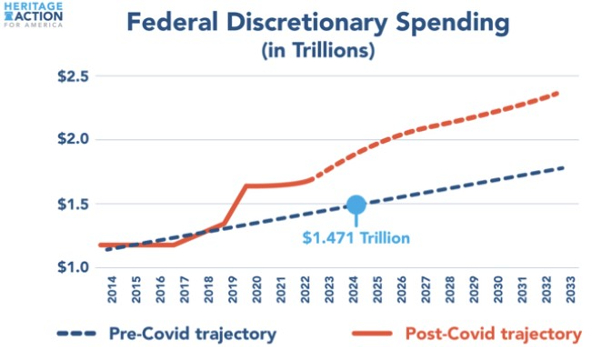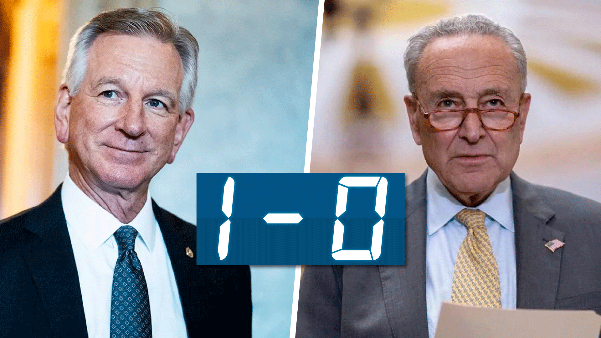The current short-term spending proposal would achieve major, permanent border security policy victories while giving the House the best possible negotiating position for long-term spending cuts and reforms.
This short-term spending proposal is fiscally responsible while incorporating policies that secure the border. It also enables the House to pass the 11 remaining appropriations bills required to fund the government, and strengthens conservatives' hand for reining in weaponized federal agencies. (Remember: they passed the Military Construction, Veterans Affairs spending bill in July.) The short-term spending proposal reduces the topline non-defense discretionary spending from the current FY2023 $1.60 trillion to $1.47 trillion - a meaningful reduction in federal spending.
There can be no question that the economic struggles many Americans are experiencing today is in large part due to the federal government’s spending spree. From March of 2020 to today the United States has spent more money than in the first 215 years of the nation’s history.
This creates inflationary pressure which has resulted in financial stress for millions including the 61% of Americans who are living paycheck to paycheck as a consequence.
But this spending package is not just about spending. Conservatives in the House are working to attach H.R. 2 (The Secure the Border Act) to the short-term spending package. It’s important to remember: If enacted, the funding provided will expire at the end of the 30 days but the Secure the Border Act would become a permanent victory for border security.
As part of Heritage Action’s Sentinel community, we offer weekly calls on Mondays to break down the policy, process, and politics of the country’s top issues. This Monday night, Ryan Walker will be doing a deep dive into the spending fight and what that means for the country.
>>>Sign up for Monday’s call by joining Sentinel<<<





